Woman Asks Biden To Include Husband In Prisoner Swap Deal With Iran
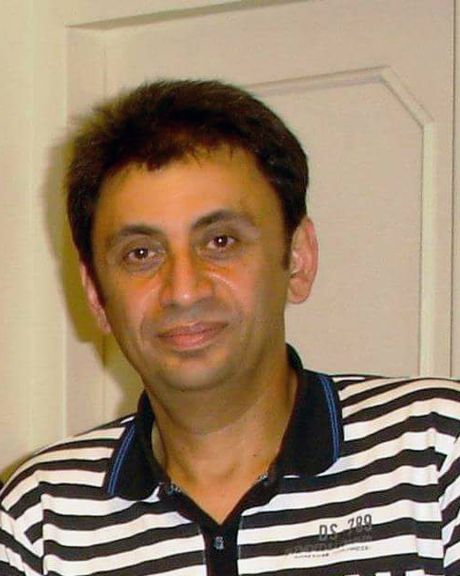
The Iranian-American wife of Shahab Dalili who has been detained in Iran for six years, has asked the Biden administration to secure the release of her husband.

The Iranian-American wife of Shahab Dalili who has been detained in Iran for six years, has asked the Biden administration to secure the release of her husband.
Nahid Dalili told NBC News on Tuesday that she fears Washington and Tehran are close to a prisoner swap deal but her husband will be left behind.
Fifty-nine-year-old Dalili, who was arrested in 2016 while visiting Tehran for his father’s funeral charged with "aiding and abetting" the US, is a legal permanent resident, but not a citizen.
Nahid said she hadn’t spoken publicly about her husband’s case out of fear of jeopardizing his possible release, but when she heard US officials in the Biden administration refer to “four” Americans imprisoned in Iran, she decided in March to break her silence.
“I want them to hear me. They can’t say they didn’t know about this,” she said. “The Biden administration shouldn’t leave Shahab behind. He is a permanent legal resident, and all of his family are citizens.”
British Iranian Nazanin Zaghari-Ratcliffe and Anoosheh Ashoori were freed in March after the UK paid a four-decade-old £400m ($522 million) debt to Iran.
Iran is still holding several other western dual nationals including American-Iranians Siyamak Namazi and his elderly father Bagher, American-Iranian businessman Emad Sharghi, and German-Iranian rights activist Nahid Taghavi.
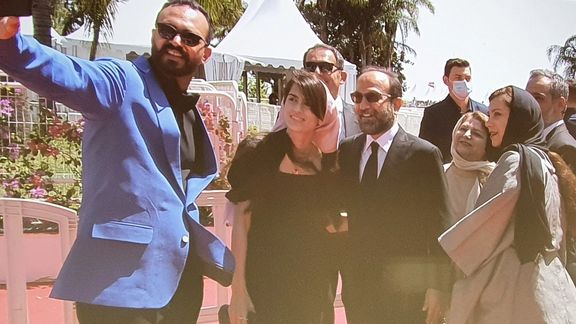
A prosecutor in Tehran has indicted Iran's internationally acclaimed film director Asghar Farhadi for alleged plagiarisms.
The prosecutor decided that Farhadi, a twice Oscar winning filmmaker, has violated the intellectual property rights of one of his students at a filmmaking workshop in Tehran and the court has issued a summons.
According to the prosecutor, Farhadi's latest movie, A Hero, has been made based on the core idea of Azadeh Masihzadeh's documentary All Winners, All Losers.
As Farhadi's movie has European producers and distributors, the case has stirred controversy in the international film journals such as Hollywood Reporter. Lawyers in Europe and Iran are still chasing the case.
Farhadi's lawyer in Tehran, Kaveh Rad, said on his Instagram page that both Masihzadeh and the man whose life story was used in the film had filed complaints that have reportedly convinced the prosecutor in Tehran that Farhadi is guilty.
However, Rad, strangely denied that the court has accepted the arguments of the young filmmaker and the prisoner whose personal story has been made public in Farhadi's movie, and according to him, has damaged his reputation.
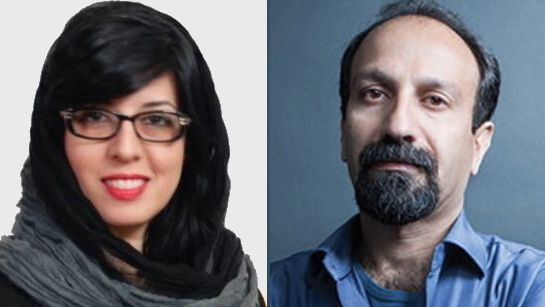
Rad said that even if the first court finds him guilty another court might over-rule the verdict and restore Farhadi's right over his movie.
According to Masihzadeh in her interviews with Iranian and foreign-based media, she shared her idea with Farhadi in the classroom and told him that she was going to make a documentary about a man who found a large amount of money and returned it to the person who had lost it.
About a year later, Farhadi made A Hero based on the same story and according to Massihzadeh, refused to pay her for the idea or to give her credit for her story in the film's title. Massihzadeh said that Farhadi forced her to sign papers to withdraw her claim, but she was lucky enough to have witnesses.
She told the media that Farhadi refused to see her and listen to her afterwards as his film became internationally acclaimed and was welcomed at several film festivals in Europe and America. It was also nominated for an Oscar, but it was not shortlisted for the award. At the time, Farhadi filed counter-complaints against Massihzadeh's charges, but she told Khabar Online in Tehran that the prosecutor ruled out Farhadi's argument.
Massihzadeh, then made her documentary available on Youtube, where film critics had a chance to decide for themselves about the charge of plagiarism.
Some Iranians on social media have said that plagiarism is Farhadi's personal problem, but he should be accountable for whitewashing the Islamic Republic's crimes. Farhadi was criticized by critics for showing Iranian prisons in a very good and favorable light in his film.
He was also criticized during the Cannes Film Festival in France for turning a blind eye to major social and political events such as the downing of a civilian aircraft by the IRGC in 2020, while he had a good opportunity to name and shame the culprits at international forum.
In his defense, Farhadi denied being an accomplice of the regime, and claimed that his passport was confiscated at the airport when he was returning from film festivals abroad.
CORRECTION: In its version, this report had said Farhadi was "reportedly convicted". This was a reporting error for which we apologize.
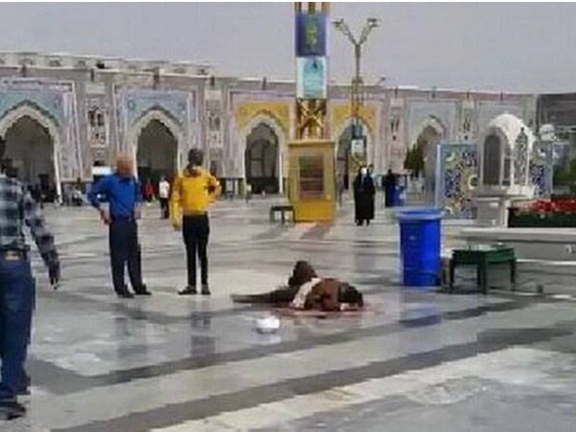
In a rare incident Tuesday, a man said to be a foreigner, stabbed three clerics in Iran's largest Shiite shrine in Mashhad, killing one of them instantly.
The incident happened during the third day of the holy month of Ramadan at the shrine of Imam Reza, the eighth imam of Shiites, in the north-eastern city of Mashhad in Khorasan- Razavi Province despite the usual heavy security measures taken at the shrine.
Mahmoud Arefi, homicide prosecutor of Mashhad Public and Revolutionary Court, said Tuesday evening that two clerics wounded by the assailant were being treated at hospital and were in stable conditions. Iran's official and semi-official news agencies said the three clerics were seminary students and active volunteers in the slum areas of the city.
The official news agency IRNA posted a video of police arresting the assailant. Videos posted on social media show the victim, named as Mohammad Aslani, with the clerical rank of Hojjat ol-Eslam, in a pool of blood on the marble courtyard of the shrine after the stabbing.
Public and Revolutionary Prosecutor of Mashhad, Mohammad-Hossein Darrudi, said hours after the incident that five men were arrested in connection with the stabbing including the assailant and four suspected of collaborating with him.
Darrudi said the assailant was a "foreign national" and that further information would be announced after completion of the investigation. Iranian officials often refer to Afghan refugees and economic migrants living in Iran as "foreign nationals".
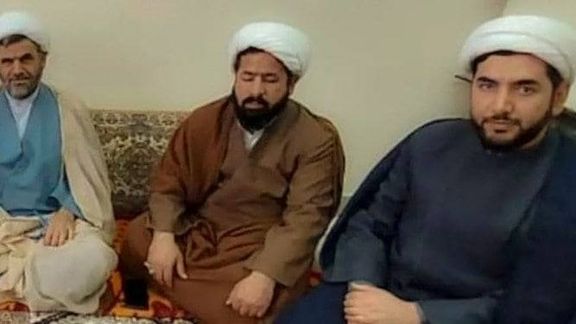
The political, social, and security deputy of Khorasan-Razavi Governor's Office, Hadi Tabatabaei, told Fars news agency that officials were meeting at the Governor's Office regarding Tuesday's stabbing and "various aspects of the incident" were being investigated.
The assailant's motive for the attack on the Shiite clerics in Mashhad is not clear. Some people on social media say they suspect a connection with the shooting of two Sunni clerics at a mosque in Gonbad Kavus, northernIran, two days earlier.
Some government supporters on social media have called the incident a terrorist attack by[Sunni] Wahhabis. Authorities have offered no explanation. They claim the attack was meant to cause strife between Iran's majority Shiites and Sunnis who constitute around 10 percent of the population.
An informed source speaking on condition of anonymity told Fars news agency that the assailant lived in the same Mashhad neighborhood as those he attacked. He also said that people in the neighborhood say the assailant had mental health issues and held personal grudges against the victims. However, this does not fit the theory that five other people helped the attacker.
Hostility towards clerics has been on the rise in Iran. In January a well-known cleric, Mohammadreza Zaeri, who often appears on state-controlled television programs, said people had a level of hatred and grudge against clerics that was creating a social crisis.
Zaeri said taxi drivers refused to pick him up and that he had been spat on and sworn at a few times recently. Another cleric, the reformist Mohammad-Taghi Fazel-Meybodi, also said in January that clerics and seminary students were avoiding their usual garb for fear of being insulted in public.
In late December, it was reported that a woman had been arrested at an earlier date in the religious city of Qom, after swearing at a cleric and trampling on his turban because he had hit her on the head with his cane for not complying with hijab rules.
Many Iranians see the clergy as responsible for their economic hardship and lack of social freedoms.

The chief of staff of the Israeli Defense Forces says the air force has accelerated preparation for action against the Islamic Republic.
Speaking at a ceremony to assign a new air force commander on Monday, Lieutenant General Aviv Kochavi said that the missions are expanding in different fields including “the readiness for action in Iran, which is currently in an accelerated process of preparation”.
He added that Israel is also upgrading its wide range of aircraft and airborne sensors and increasing and perfecting the scope of aerial attacks of all kinds.
The strikes by the air force have "decisive impact" in preventing Iranian forces from entrenching themselves in Syria, keeping Hezbollah out of the southern Golan Heights, and preventing Israel's enemies from "gaining advanced weapons systems", he said.
Expressing concerns over increased violence during the Islamic fasting month of Ramadan, he said security forces have foiled at least 10 attempted attacks in the last two weeks.
A total of 11 people were killed in a one-week period in a succession of fatal attacks -- a car-ramming and stabbing spree in Beersheba, mass shootings in Bnei Brak and Hadera, and a stabbing in Gush Etzion.
The attacks were praised by Iran-backed Lebanese Hezbollah and media affiliated with Iran Revolutionary Guards.
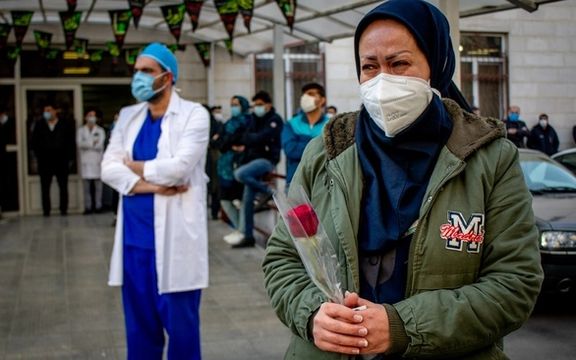
Iran's Medical Council says about 4,000 doctors have applied for Certificates of Good Standing in the past 12 months with the intent to leave the country.
Council spokesman Reza Laripour said on Monday that the annual number of such applications was less than 600 between 2013 and 2015.
Rejecting some reports saying only young doctors were applying for a certificate, Laripour said that the council receives applications from doctors from different age groups.
General economic conditions have deteriorated in the country since 2018, when the United States unilaterally withdrew from the 2015 nuclear deal between Tehran and world powers and reimposed crippling sanctions.
The Medical Council of Iran is a non-governmental organization that is responsible for licensing doctors in Iran. It can deliver Certificates of Good Standing confirming that the applicant is entitled to practice medicine in the country.
There are around 90,000 doctors in Iran, split evenly between general practitioners and specialists.
Last month, the governor-general of Fars Province, who is himself a medical doctor and the longest serving dean of the medical school in Shiraz, created an uproar in Iran when he told doctors they were not indispensable and that they could leave the country if they wish.
"Doctors who threaten to leave Iran are free to go and I will see them off," Mohammad Hadi Imanieh was quoted as saying, adding that he would be willing to pay the travel cost of medical doctors who wish to leave Iran.
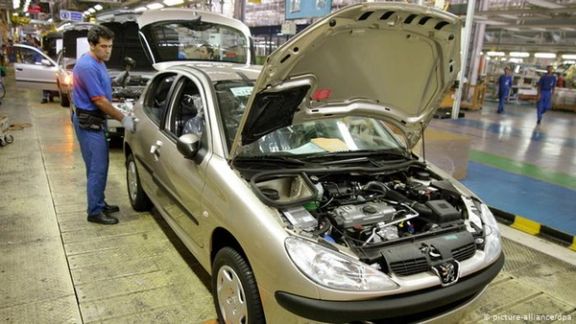
Industry critics say a “mafia-like” influential group is behind a ban on car imports to eliminate competition to Iran's auto industry where their interests lie.
In an interview with Bazaar website on Monday, Mehdi Dadar, secretary of car importers' association, said buyers in the Iranian market are critical of a ban on importing cars behind which, he alleged, lies a 'mafia group', as authorities do nothing to correct the situation.
Dadar accused policymakers of indirectly supporting Chinese auto parts manufacturers and turning the industry into "assemblers of Chinese parts". He alleged that powerful importers of car parts are behind government opposition to importing cars.
Iran's quasi-government automotive industry, the county’s largest after oil and gas, employs 700,000 workers. Iran annually makes nearly 1.5 million vehicles. The sector is in debt for billions of dollars and is a large burden for the government and its banks.
The issue of the ban on car imports introduced in 2018 became very controversial last week when lawmakers realized that their approval for the government to provide foreign currency to importers for 70,000 cars had been eliminated from the budget from the budget.
During their debate over the budget earlier, lawmakers had agreed to the government's plan to allow importing 70,000 cars in the next 12 months to augment tax revenues. The budget bill, however, set a condition that the cost of the imported cars would not exceed 25,000 per unit.
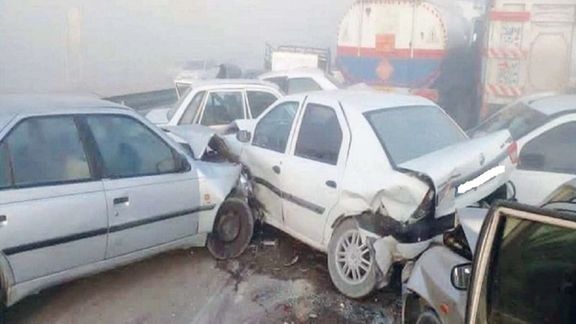
According to the official news agency IRNA, the omission was made with the knowledge of the parliament's presidium and Speaker Mohammad-Bagher Ghalibaf because they knew the constitutional watchdog, the Expediency Council would oppose it.
Critics, however, say that the Expediency Council and another watchdog, the Guardian Council, should not have intervened in a practical matter, and allege outside influences played a role in the interference.
Minister of industries, mines, and trade, Reza Fatemi-Amin, on March 13 claimed that the ban on car imports was a consequence of shortage of foreign currency rather than a measure to support domestic producers and the ban would be lifted soon.
Iran Khodro and Saipa, the two largest automakers, have a monopoly in the Iranian market.
Critics say by protecting automakers' interests in many ways, including by eliminating foreign competitors, successive Iranian administrations have become complicit in putting innocent people's lives in danger.
Road Police officials have repeatedly warned about inadequate safety standards of domestic cars. Speaking to the Iranian Students News Agency (ISNA) in October, Deputy Chief of Iran's traffic police, Brigadier-General Taymour Hosseini said road accidents were occurring due to inadequate safety standards as Iranian companies struggled to keep up with cost and parts sourcing. "Big companies in the world are working on intelligent cars but we have dropped our expectations so much that we are happy with having anti-lock braking systems,” he said.
In an interview on March 24 with Hamshahri Online, chief of Iran's road and traffic police, Brigadier General Kamal Hadianfar, criticized manufacturers for importing car parts from China, saying there is no effective quality control in the industry.
After two massive vehicle collisions involving tens of cars in southwestern Iran in January during which the cars' airbags failed to open, Hadianfar called domestically produced cars "carriages of death".